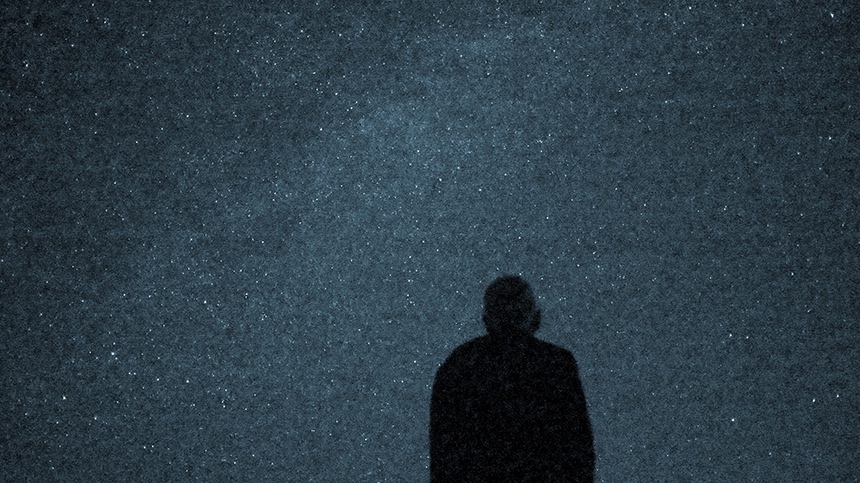New York 2024 Review: LITTLE, BIG, AND FAR Conjures Up Celestial Music
Jem Cohen makes a gentle inquiry to human connections while presenting it within the bigger picture; in this case, the universe.

The launching of the James Webb space telescope in 2021 changed the way we look at space.
High up in space, it is able to detect the wavelength of many distant planets, stars and galaxies that the Hubble space telescope couldn't. The clear and astonishing images of the planets in the solar system are flooding in for the first time.
There was another awesome celestial development: the European Space Agency (ESA)'s Rosetta Mission put a lander probe on Comet 67P/Churyumov-Gerasimenko, named after its two scientists who first detected it. It recorded a 24 minute video footage from the surface of the comet, and was later compiled as a grainy black and white two seconds gif, which became the internet sensation.
In it, we see the great jagged mountain cliffs with specks of space dust flying about like snow with the vastness of space in the background. These jaw dropping, fairly recent developments in space explorations and discoveries and the implications of finding the origins of our known universe were never properly contemplated in current culture, until now, with Jem Cohen's Little, Big, and Far.
The film starts with an Austrian astronomer named Karl. He chronicles how he got into the field and discusses his love for jazz, the soundtrack for space. It is something to see the ESA probe Philae's footage of comet's surface gif on loop with Coltrane's Manifestation (from the album Cosmic Music) blasting in the background on the big screen.
Karl has studied stars all his adult life, but at 70, he is at a crossroad. His consultant gig at the university is uncertain and his physicist wife is in Arizona, utterly devoted to her work, and he feels they are growing apart.
For a while Little, Big, and Far is a visual/aural correspondence between Karl and Sarah, a fellow astronomer, who resides in the US. Sarah's concern is with the ecological disasters in the anthropocene era, that the environmental destructions caused by human activities are too vast and frequent, recently highlighted by the Eastern seaboard in the US being besieged by unnatural orange smoke blown from a large forest fire in Canada.
Sarah tells a story about an abandoned New Jersey telescope steeped in local legend and folklore by way of her young, nonchalant and wise beyond his years PhD student. The title, Little, Big, and Far refers to what Karl and his wife see as the core of their work and life. Our lives seem very small to the vastness of the known universe which is still expanding, in comparison.
Cohen, as with his Museum Hours (2012), makes a gentle inquiry to human connections while presenting it within the bigger picture- in this case, the universe. His unhurried docu-fiction hybrid, using real academics and scientists through interviews and anecdotes, is so seamlessly melded together, while accentuating his micro/macro world view.
After attending a conference in Greece, Karl takes a journey to a remote small Greek island in search of the darkest skies. He talks with the eccentric locals who has his own theories about our solar system and ancient methods to measure time.
The big finale to the story, which Cohen has been brewing throughout the whole film, features the awe-inspiring skies studded with stars as Karl sits atop of the highest point of the hill in a remote Greek island. Our mind wanders, as we contemplate the stardust, the infinite vastness of space, and our human connections to each other, which gives meaning to our existence.
With the long shutter, Cohen captures all the glories of the universe. And it's magical.
Dustin Chang is a freelance writer. His musings and opinions on everything cinema and beyond can be found at www.dustinchang.com.
The film screens at the New York Film Festival as a world premiere.
Little, Big, and Far
Director(s)
- Jem Cohen
Cast
- Mario Silva







